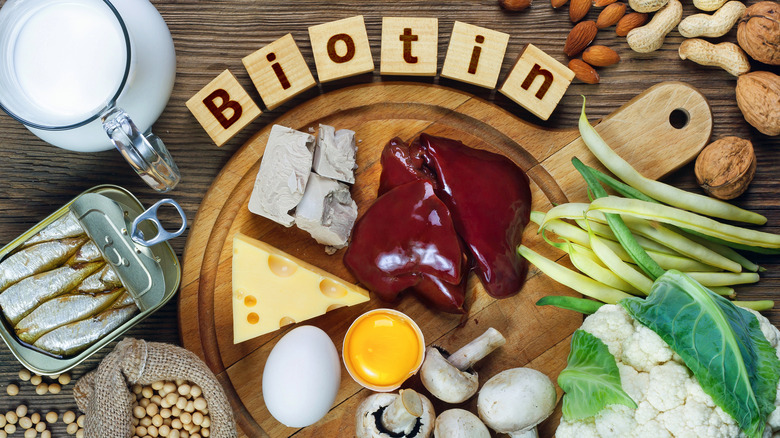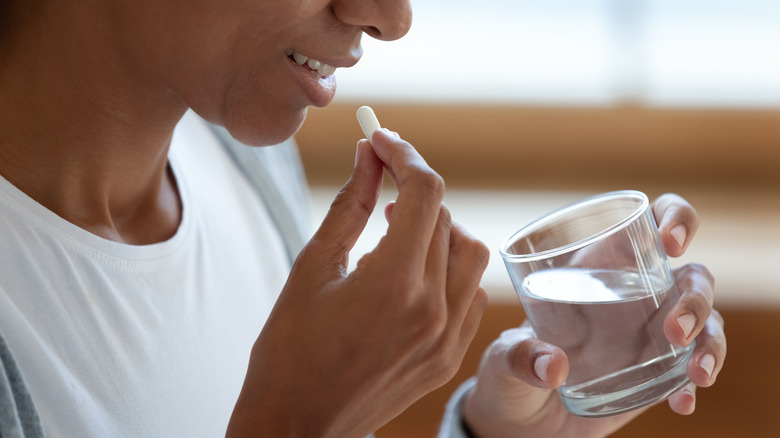Can You Take Too Much Biotin?
Biotin is promoted as an essential nutrient for healthy skin, hair, and nails. Also known as vitamin B7, it plays a key role in gene regulation, cell signaling, and energy metabolism. After ingestion, it's broken down into smaller compounds and stored in the liver. Most adults need only 30 micrograms of biotin per day, but some supplements provide much higher doses.
Biotin deficiency is uncommon in healthy people. This condition tends to affect pregnant and breastfeeding women, heavy drinkers, and individuals with biotinidase deficiency, a disorder that affects biotin metabolism. Generally, most adults get about 35-70 micrograms of this nutrient per day from food. Some also choose to take biotin supplements for hair loss, brittle nails, or skin problems. However, it's unclear whether or not biotin can help with these issues. "So if you have thinning hair or brittle nails, it's probably not due to a biotin deficiency," dietician Courtney Barth told the Cleveland Clinic. "There's usually another health condition causing these problems, such as iron deficiency or a thyroid issue."
Dietary supplements may help to some extent, but the research is mixed. Some formulas, such as those developed by Puritan's Pride, contain up to 10,000 micrograms of biotin per serving, which is way above the daily recommended intake. This brings up the question, how much biotin is too much?
Potential risks of taking too much biotin
Biotin supplements are often the go-to choice for those struggling with hair loss, but you should think twice before popping pills. First of all, high biotin intake can interfere with thyroid function tests and alter their results. Taking too much biotin may also affect your body's ability to absorb and use vitamin B5, resulting in cystic acne. "Although this is not considered 'dangerous,' it is a side effect that can impact your life — cystic acne can be painful," dermatologist Melanie Kingsley told Bustle.
The health experts interviewed by Bustle warn that excess biotin may cause severe rashes, nausea, abdominal pain, and digestive discomfort. In some cases, biotin supplements can interact with other drugs or cause allergic reactions. Additionally, there is limited information on their safety for pregnant or nursing women, children, and individuals with existing conditions.
High biotin intake is unlikely to cause toxicity. For this reason, health organizations have not established an upper tolerable limit. However, you should still consider the potential risks and discuss your health needs with a medical professional. As mentioned earlier, hair loss and brittle nails are not necessarily due to low biotin levels. If you have an underlying condition, taking biotin supplements may not make much of a difference. Also, note that you can get this nutrient from eggs, beef liver, salmon, almonds, sweet potatoes, and other whole foods.


